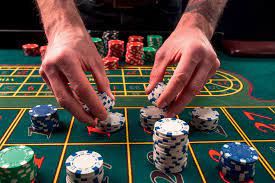Are you a gambler? If so, you can take a Gambling Problem Self Test to determine if you might have a gambling problem. These tests are based on DSM-IV criteria for pathological gambling. You should answer the questions honestly. Try to focus on your gambling activities over the past 12 months. If you answer yes to any question, you may have a gambling problem. However, it is important to note that these tests cannot diagnose or treat the disorder.
The three domains of the Gambling Disorder Identification Test (G-DIT) are: time, money, and risk. The G-DIT will include an appendix that will measure types of gambling and expenditure. It will complement existing screening scales and be a standard outcome measure for change in problem gambling behavior. Furthermore, it could be used as a clinical tool for identifying problem gamblers. These are just a few of the reasons why a Gambling Problem Self Test is so important.
There are many types of gambling addictions, and each has its own set of consequences. A gambler’s quality of life and overall style of living can be affected. Those who lose their money in a single session could spend their entire funds the next day. Ultimately, they could suffer severe problems and ruin their relationships. In addition to the financial impact, these activities can also be extremely damaging to a person’s health. Those affected by gambling addiction should consider seeking help as soon as they suspect that they have a problem.
The Swedish Gambling Problem Self Test (G-DIT) is an example of an effective self-test for gambling problem. This self-test allows gamblers to reflect on their behavior and determine if they need to seek treatment. In addition to assessing gambling habits, the G-DIT helps those with gambling problems to improve their quality of life. However, the G-DIT has limitations that limit its effectiveness. It is important to remember that no self-test is 100% effective for diagnosing gambling problems.
If you’re looking for a Gambling Problem Self Test, you have probably already tried many techniques to quit. Perhaps you spend 10 days in a row thinking about gambling. You’ve tried to cut back but failed every time. You may have even sold possessions to fund your gambling habit. You may also have tried lying to others to cover up your gambling habit. Some people gamble to escape from their personal issues or to compensate for a loss.
A Gambling Problem Self Test helps identify whether you’re suffering from a problem with gambling. People with a gambling problem may be suffering from a mental disorder, such as bipolar disorder, obsessive-compulsive disorder, or attention-deficit/hyperactivity disorder. Those with gambling problems should seek professional help and seek treatment. There are many ways to overcome compulsive gambling and restore your financial and personal life.





